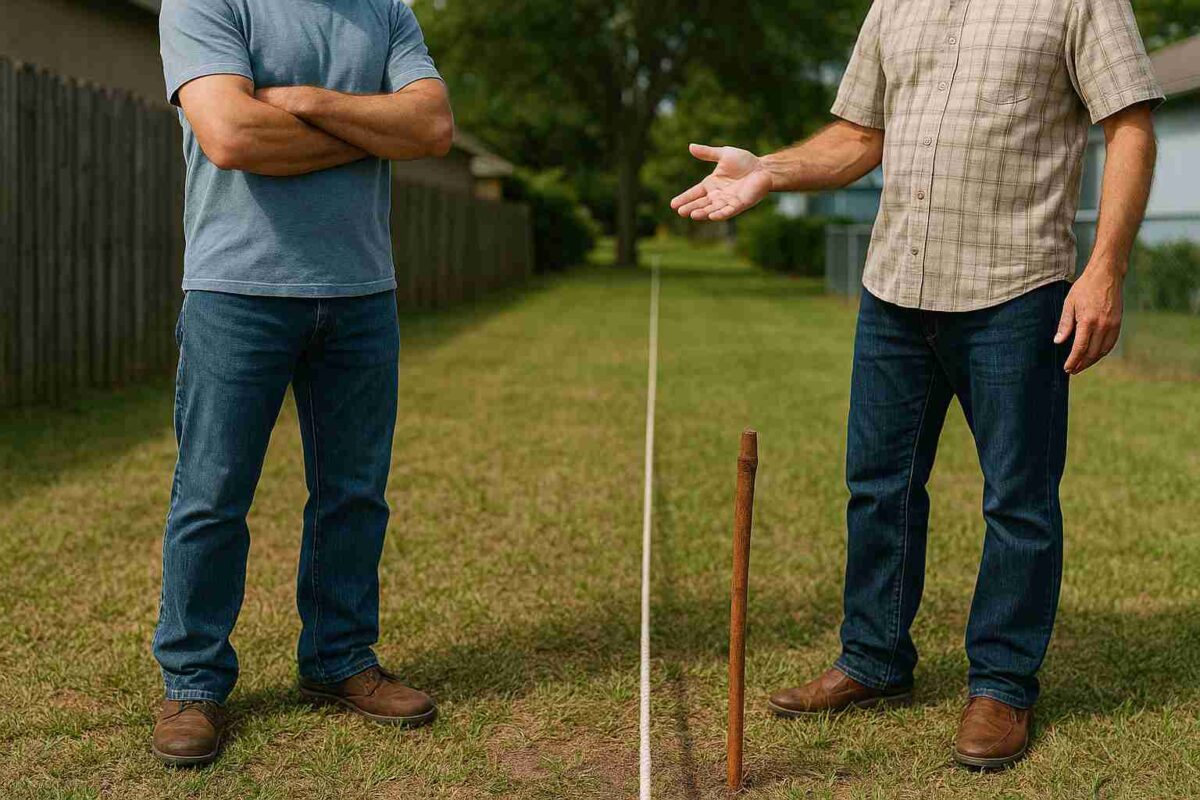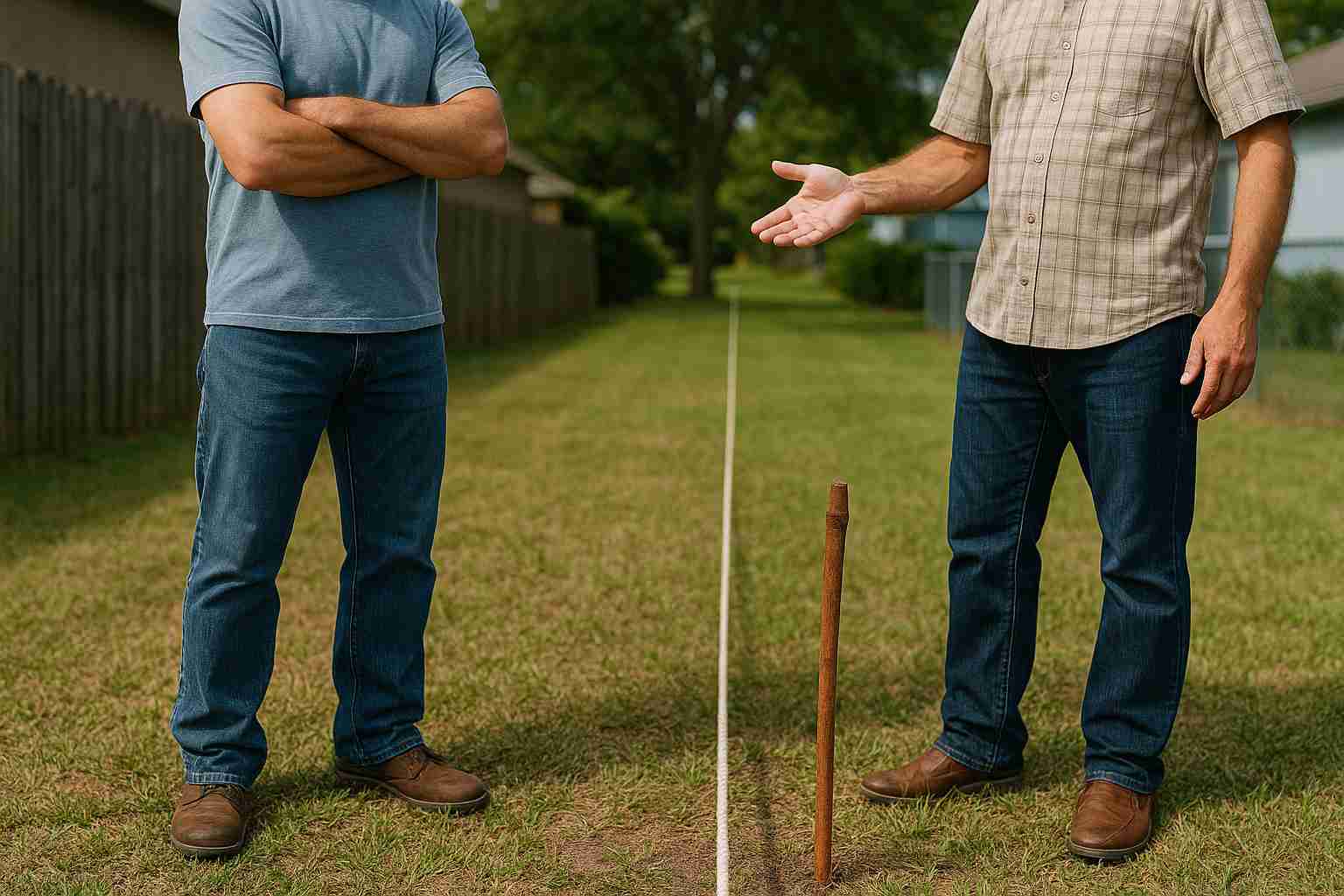
Disputes with neighbors are never pleasant, especially when the issue involves something as fundamental as your property boundaries. If you’re dealing with a disagreement over where your land ends and your neighbor’s begins, you’re not alone. Property line disputes are surprisingly common, often stemming from unclear boundary lines, conflicting surveys, or simple misunderstandings. While these disputes can escalate quickly, there are steps you can take to protect your rights, preserve neighborly relationships, and find a resolution. Continue reading and reach out to the knowledgeable Florida real estate lawyers here at Ansbacher Law to learn more. Here are some of the questions you may have:
What Causes Property Line Disputes In Florida?
Property line disputes can arise from a variety of situations. Commonly, this includes:
- Unclear or outdated surveys
- Conflicting deed information
- Fences, trees, or structures placed near boundary lines
- Changes made to the property by new owners
- Older properties with incomplete or missing land records
- Changes in zoning or subdivisions
What Should I Do First If I Suspect A Boundary Issue?
If you believe there is a boundary issue between your property and your neighbor’s, the first step is to remain calm and gather information. Emotions can run high in these situations, but a measured response can go a long way.
Review Your Property Records
Start by reviewing your property deed and any survey documents you may have received at the time of purchase. These documents can help you understand your legal boundaries. You should review:
- The deed
- Prior surveys
- Title insurance documents
- Plat map
Obtain a Professional Survey
After reviewing the documents, you should connect with a professional surveyor to help you obtain a clearer picture of where the boundary lines on your property are. The surveyor will use the legal descriptions in your deed, plat maps, and physical markers to help determine the boundaries of your property. Working with a licensed professional is critical, as their findings may be relied on in court.
Talk With Your Neighbor
Once you have this information, it’s a good idea to open a dialogue with your neighbor. Keep the conversation respectful, and share your findings. Sometimes, a civil conversation paired with clear evidence can resolve the issue without further conflict. If both parties agree on the findings, you may even be able to draft a boundary agreement and file it with your county’s property records.
When Can a Boundary Dispute Be Resolved Without Going to Court?
A boundary dispute can be a considerable headache for both parties, especially when it seems like the only road to resolution is through court. However, it’s critical to understand that there are alternative dispute resolution options, like mediation or negotiation, that can help you resolve this matter without court intervention.
Common resolution outcomes include:
- Mutual agreement based on the outcome of the survey
- Mediation or facilitated discussion between you and your neighbor
- Written boundary or lot line agreement
When Should I Involve A Real Estate Attorney?
If informal discussions don’t lead to a resolution, or if your neighbor disputes the results of the survey, continues to encroach on your property, or the value of your property is impacted as a result, it’s time to speak with a real estate attorney. A real estate lawyer can help you understand your rights, explore legal remedies, and, if necessary, represent you in court. They can also assist in negotiating a settlement or pursuing a quiet title action to establish clear ownership rights.
How Can a Lawyer Help With a Property Line Dispute?
Real estate law can be incredibly complex. That is why it’s critical to connect with an experienced attorney to represent you during these difficult times. A such, a real estate lawyer can assist you by:
- Reviewing legal documents
- Explaining legal boundary rights
- Negotiating with your neighbor on your behalf
- Drafting enforceable agreements
- Protect you from adverse possession
What Is Adverse Possession and Why Does It Matter in FL?
Legal guidance becomes especially important if there is any threat of adverse possession, which in Florida. This essentially allows someone to gain ownership of land they do not legally own, and occurs if someone openly uses or occupies part of your land without permission for a certain period of time. A lawyer can help prevent long-term consequences like loss of property by taking timely legal action.
Work With Our Florida Real Estate Attorneys Today
In the end, while property line disputes are frustrating, they can often be resolved with the right approach. With professional guidance, clear documentation, and a willingness to communicate, you can protect your property and your peace of mind. At Ansbacher Law, we understand the impact these issues can have on your life, which is why we are committed to fighting for you. When you need help, contact our team to learn how we can represent you.

